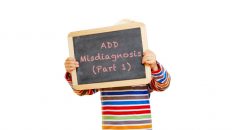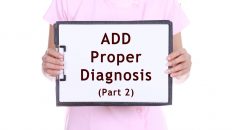By Jerry Morris, PsyD, MsPharm, MBA
MB (Marc Braman, MD, MPH):
An average run-of-the-mill, attention deficit disorder, how often and for how long is someone seeing a therapist?
JM (Jerry Morris, PsyD, MsPharm, MBA):
Okay, good question. First of all, I would never think of treating an attention deficit disorder individual without regular individual and family therapy once a week for a long time, sometimes several years. But that’s not adequate. That’s just brief and you’ve got to pull in the schools, you’ve got to teach and monitor the family to do this in the home. You’ve got to get religious institutions and lifestyle involved, and if you don’t get lots of people involved in creating those frontal neurons… those inhibition… those flexibilizing… those choosing neurons… to take control of the lower and posterior areas of the brain, you’re not going to succeed. So, no therapist by themselves, meeting with a kid once a week for two to three years, can accomplish this. But if they are good leaders and they teach others, and collaborate with systems in the child’s life, the kid is now getting hundreds if not thousands of repetitions of these things that grow those frontal neurons each week.
MB:
So, what I am not hearing from you is what I typically see in practice, and that is “Here’s your prescription, see you at your next appointment for another prescription.”
JM:
Yeah, that’s really parallel to witchcraft. That’s not understanding the brain, the brain’s growth patterns and development, neuroplasticity, and it’s not understanding the science that shows what the medications can and can’t accomplish.
MB:
Very good, so this gives our listeners a much better overall understanding of ADD, some of the causes, treatment options, what best treatment would look like, and the key concept that what we’re doing is really wanting to treat those front part of the brains, that really make us human, like a gardener wanting to nurture them, and grow them, and help to become healthy and productive.
JM:
That’s exactly right, Marc.
MB:
Versus just chemical management for the moment. Thank you so much, Dr. Morris. Our next session, we’re going to get into deeper detail on the lifestyle causes, and potential treatments as part of dealing with ADD. Thank you Dr. Morris.
JM:
You’re welcome Marc.
Attention-deficit/hyperactivity disorder is characterized by a delay in cortical maturation. Shaw P, Eckstrand K, Sharp W, Blumenthal J, Lerch JP, Greenstein D, Clasen L, Evans A, Giedd J, Rapoport JL. (2007). Proc Natl Acad Sci USA. Dec 4;104(49):19649-54. Epub 2007 Nov 16.
From Neuroscience: Seven Principles of a Brain-Based Psychotherapy. Kandel ER, Schwartz, JH, & Jessell, TM. Principles of Neural Science. 2001 McGraw-Hill. New York. Psychotherapy: Theory, Research, Practice, Training 1997 Copyright 2005 by the Educational Publishing Foundation 2005;42,(3):374–383.
A new intellectual framework for psychiatry. Kandel E.R. Am J Psychi. 1998; 155, 457–469.
Attention Deficit Hyperactivity Disorder: Effectiveness of Treatment in At-Risk Preschoolers; Long-Term Effectiveness in All Ages: and Variability in Prevalence, Diagnosis, and Treatment (2011). Agency for Healthcare Research and Quality U.S. Department of Health and Human Services 540 Gaither Road Rockville, MD 20850 www.ahrq.gov Contract No. MME2202 290-02-0020. AHRQ Publication No. 12-EHC003-EF.





